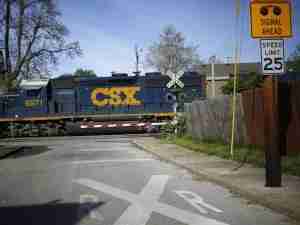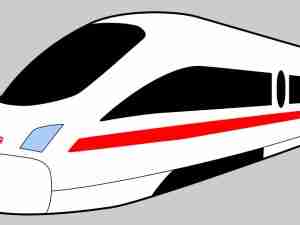The train is the first regular rail freight service to use the High Speed 1 rail route, the only European sized railway in the UK. As a result, the train can be loaded with European sized curtain sided swap bodies, opening up a new freight and logistics market. The train, which has strengthened trading links between Poland and the UK, operates once a week leaving Wroclaw, in Poland, late on a Tuesday evening, arriving into Barking, London, early on Friday morning the same week.

The train delivers a range of manufactured parts and components for the automotive sector and an extensive range of goods for the food and retail markets.
The service has been introduced utilizing DB Schenker Rail's pan European rail freight network, offering customers integrated logistics solutions across the whole of Europe. Operation of the train has been led by DB Schenker Rail UK and DB Schenker Rail Polska, while the marketing of the service in Poland has been assisted by DB Schenker Logistics.
Alain Thauvette, Chief Executive of DB Schenker Rail UK, said: 'This is a historic moment for European rail freight. We have worked hard to introduce services onto High Speed 1 as this opens European rail sized haulage to the UK. The arrival of the first train in Barking this morning will be the first many new connections across Europe. We will work with our customers in the UK to demonstrate the benefits of using the High Speed 1 rail route to trade with mainland Europe and expect to introduce a number of additional trains using this route during 2012.'
Hans-Georg Werner, Chief Executive of DB Schenker Rail Polska, said: 'Strong European rail freight trading links are essential for economic development and to encourage modal shift from road to rail, and this service demonstrates the strength of the DB Schenker Rail network. This is an important step for rail freight in Poland, as a new market to the UK has been developed and a new trading route opened.'
Janusz G'rski, Chief Executive of DB Schenker Logistics in Poland, said: "The new intermodal solution is our proposal to clients from many branches. It enables them to make their supply chains more ecologically friendly. Our customers can also use our environmental calculator to measure the results of lowering their carbon footprint due to this new intermodal solution."







